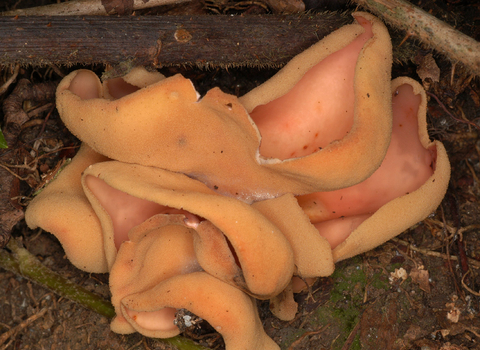
Hare's ear ©Dr Malcolm Storey
Hare's ear
The hare's ear is a cup-like fungus that grows in clusters in broadleaved and mixed woodland, often near to the path. Its orange colour makes it quite conspicuous in the leaf litter.

Hare's ear ©Dr Malcolm Storey